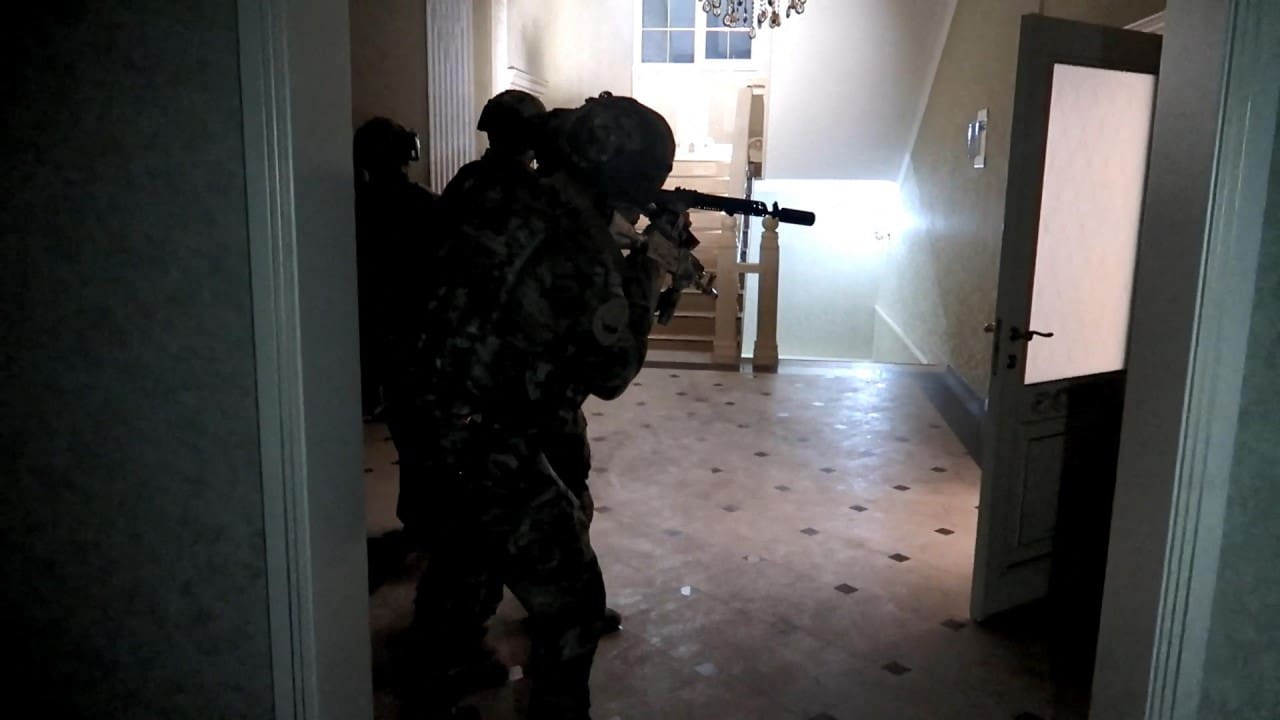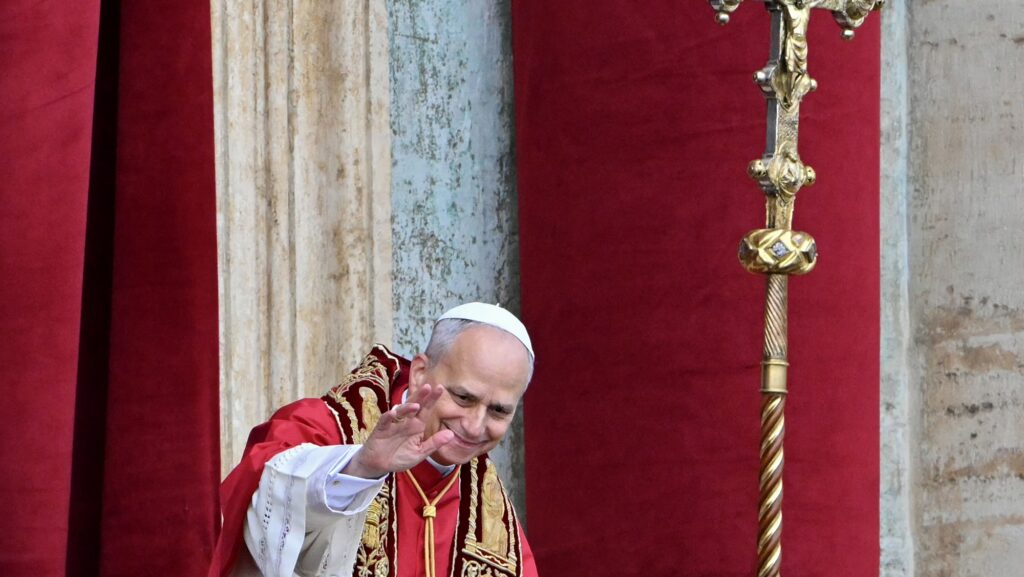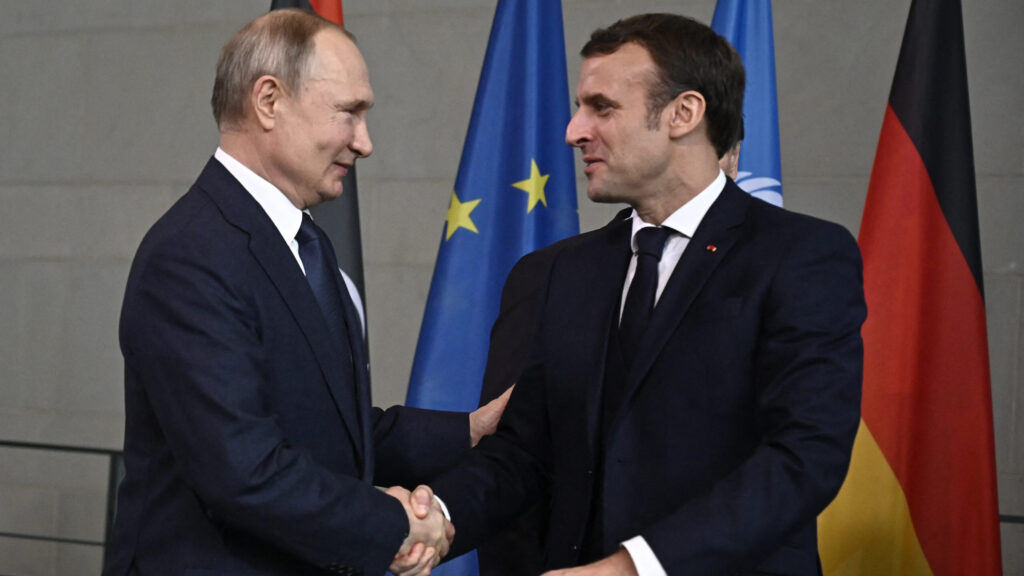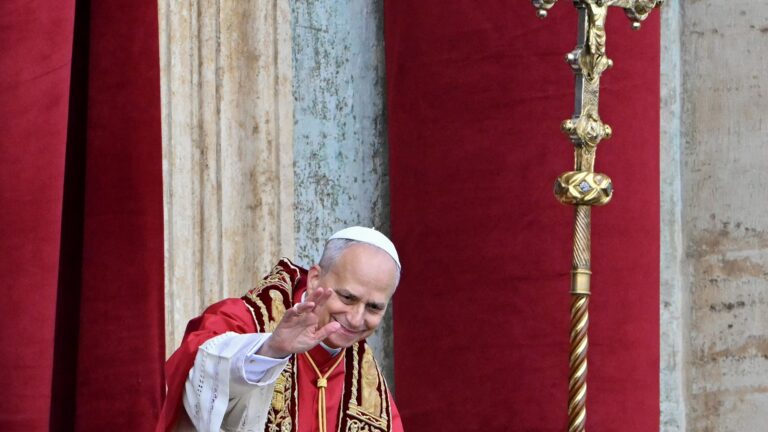While Russia is distracted fighting Ukraine and imprisoning its own peaceful citizens for anti-war activism, a real enemy, radical Islamist terrorism, uses this delusional blindness to strike a series of bloody terrorist attacks in a multitude of Russian cities.
On 24 June Makhachkala and Derbent (cities in Dagestan, Russia) were targeted in a series of coordinated terrorist attacks. In Derbent an Orthodox church and a synagogue, while in Makhachkala an Orthodox church and a police post came under attack by radical Islamists. In Derbent a 66-year-old Orthodox priest, Nikolai Kotelnikov, who has been serving for over forty ears at the Church of Intercession of the Blessed Virgin Mary, became one of the early victims of the attacks. In addition, fifteen police officers responding to the coordinated attacks were murdered; in total the attacks claimed twenty lives. The targeted synagogue, the only one in the city of Derbent, was fortunately empty at the time of the onslaught.
The synchronized attacks in Dagestan came just one week after a group of IS fighters were liquidated after they took hostages in a pretrial detention centre in the city of Rostov-on-Don.
In this earlier shooting, in addition to the terrorists, some prisoners had also been killed.
As a tragic coincidence, on the very same day when these terror attacks took place in the Republic of Dagestan, four Ukrainian missiles were shot down by Russia over the city of Sevastopol, while one detonated mid-air. The falling debris injured 150 civilians, four of whom, including two children. According to the Russians the missiles were launched by the US-supplied Army Tactical Missile System (ATACMS), therefore soon after the strike US Ambassador to Russia Lynne Tracy was summoned.
According to information available to the press, President Joe Biden gave permission to Kyiv to use US weapons for long-range strikes on Russia just about a month before the ATACMS debris killed four in Sevastopol. Blaming the US administration, the Kremlin vowed that there will be response measures in retaliation for the murder of Russian children. The Ukrainian strikes happened while Russia was bombing Kharkiv, where at least one person died. Due to the tragic coincidence, the Kremlin’s narrative claimed Kyiv’s and the United States’ responsibility both for the Sevastopol and the terrorist attacks in Dagestan. State Duma member Abdulkhakim Gadzhiyev alleged that the strikes were linked ‘to the special services of Ukraine and NATO countries’.
These recent acts of terrorism were not the only ones targeting Russia in 2024. In March this year terrorists broke into the Crocus City Hall in Moscow, killing over 140 and injuring well over 500 people. The perpetrators were identified as ethnically Tajik, and although the Islamic State immediately claimed responsibility for the attack, the Kremlin accused Ukraine of helping the terrorists plan the attack and of offering them to cross Russia’s border to Ukraine. Countering the narrative that Islamist radicalism is the key to understanding the motivation behind the Crocus City Hall massacre, the Kremlin media highlighted the bravery of a schoolboy named Islam Khalilov (15 years of age) who worked in the cloakroom of the concert hall and once the attack began helped direct people towards the exits saving ‘over a hundred’ lives. Islam is from a Kyrgyz immigrant family (about 10 million migrant workers, mostly from Central Asia, live in Russia).
These terror attacks are only some of the many signs that Russia is facing a real threat in terms of radical Islam in the Caucasus. In October 2023 a crowd of radical fanatics besieged the Makhachkala airport in majority-Muslim Dagestan in search of Jews. The antisemitic riot which led to sixty people being arrested left the airport with smashed windows and injured policemen. A couple of months later, the video message of a 19-year-old Chechen girl, pleading for protection shook the Russian public—outside the Moscow police station where she sought refuge a group of Chechen men demanded that be handed over to them. The protesting men intended to take her back to Chechnya from where she had escaped due to the restrictions on her personal freedom she faced as a woman. While 19-year-old Liya Zaurbekova managed to leave Russia and find refuge in a nearby country, in 2022 26-year-old Seda Suleimanova was not that fortunate. Shortly after fleeing Chechnya she was abducted from her flat in St Petersburg—no one has heard from her since. The ‘sin’ of these women, who are at risk of being murdered by their male relatives for brining ‘shame on their families’, is the desire to enjoy more personal freedom than women are allowed in Chechnya or falling in love with an ethnically non-Chechen man.
These acts of aggression on Russian citizens were not conducted or devised by Kyivan ‘Nazis’, Galician ‘Banderites’, the Azov battalion or by US intelligence services.
These Chechen women were not kidnapped, and the Derbent priest was not murdered in his own church by Ukrainian right-wing militias’. These barbaric attacks are the fruits of Islamist radicalism, a problem Russia would love to turn a blind eye on. Similarly to the West, also unwilling to acknowledge the extent of the threat of radical Islam due to its ‘political correctness’, Russia also holds on to its fair share of mistaken ideologies. The depiction of ‘Ukrainian Nazis’ as the sole enemies of Russia makes the Kremlin completely disregard other threats, like that of radical Islam.
From the perspective of global Islamist terrorism, however, there is little to no difference between Brussels, Moscow or New York. For Islamist fanatics Russians are not their brothers, but infidels who must die or convert. It is most unfortunate that while Ukrainians and Russians are dying in drone strikes, and the Russian security services are busy searching for ‘terrorists’, meaning anti-war activist students and pensioners, the Kremlin is losing its ability to discern and counter real threats.
Read more on Russia:







